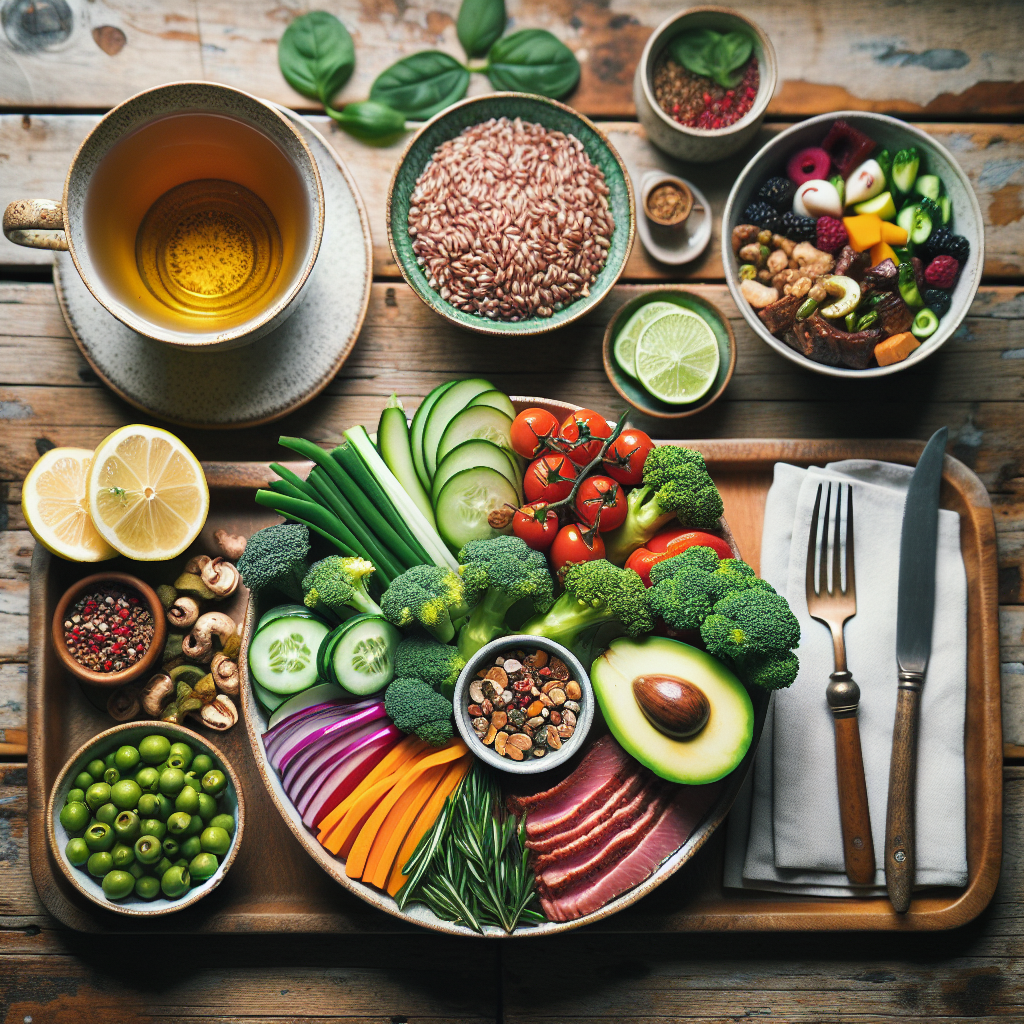Let’s be honest—we’ve all been there. Standing in the grocery store aisle, frantically scanning barcodes, mentally calculating whether that 150-calorie snack fits into our daily 2,000-calorie budget like we’re solving a complex mathematical equation. Welcome to the modern wellness paradox, where we’ve reduced the magnificent complexity of human health to simple arithmetic. Your calorie calculator might tell you exactly how many calories are in that kale smoothie, but here’s what it can’t tell you: why your colleague lost fifteen pounds eating the exact same meals that left you feeling bloated and exhausted.
The obsession with calorie counting has reached almost comical proportions. We’ve got apps that track every morsel, smart scales that weigh our food to the gram, and fitness trackers that guilt-trip us when we eat an extra almond. It’s like we’ve all become human calculators, except instead of solving for X, we’re solving for “Will this bagel ruin my life?” But here’s the kicker—despite all this number-crunching, many people still struggle with their health goals, left wondering why the math just doesn’t add up.
The fundamental limitation of calorie counting lies in its stunning oversimplification. It assumes that all bodies are identical machines that process fuel in exactly the same way—but your nutritional needs are fundamentally different from everyone else’s. But anyone who’s ever shared a meal with friends knows this simply isn’t true. Your friend might thrive on cold salads while you need warming soups. Your partner might skip breakfast with ease while you turn into a hangry monster without morning fuel. The calorie calculator treats everyone like the same model of car, when in reality, we’re more like an eclectic fleet ranging from vintage classics to modern hybrids—each requiring different care, fuel, and maintenance.
When Ancient Wisdom Laughs at Your Spreadsheet
Now, imagine walking into a Traditional Chinese Medicine practitioner’s office with your meticulously tracked calorie spreadsheet. They might smile politely, but internally, they’re probably thinking, “That’s cute, but let me tell you about the real story happening inside your body.” TCM has been in the wellness game for over 2,000 years, and it’s never once asked, “But how many calories are in that ginseng?“
Traditional Chinese Medicine operates on an entirely different wavelength. Instead of obsessing over numerical values, TCM practitioners focus on the flow of Qi (your vital energy), the balance of yin and yang, and the harmonious functioning of your organ systems. It’s less about the calories going in and more about whether your body can actually transform that food into usable energy. Think of it this way: your calorie calculator is like measuring how much gasoline you pump into your car, while TCM is checking whether your engine is actually running properly, if your fuel lines are clear, and whether your exhaust system is functioning.
In the TCM worldview, your body isn’t a simple calorie-burning machine—it’s an intricate ecosystem where everything is connected. Your digestion doesn’t happen in isolation; it’s influenced by your emotional state, the season, the time of day, and the overall balance of energies in your body. That 500-calorie meal might nourish you beautifully one day and leave you feeling sluggish the next, depending on what else is happening in your internal landscape.
The TCM approach recognizes that food is medicine, but not all medicine works for all people. While Western nutrition might say “a calorie is a calorie,” TCM responds with a knowing chuckle and says, “Tell that to someone with spleen Qi deficiency trying to digest raw vegetables.” TCM understands that the same food can have warming or cooling properties, can move energy up or down, and can strengthen or weaken different organ systems depending on your unique constitution.
Your Body Constitution: The Secret Ingredient Your Calorie Calculator Ignores
Here’s where things get really interesting. In TCM, we talk about something called “body constitution“—basically, your unique biological blueprint that determines how you respond to food, weather, stress, and pretty much everything else. It’s like having a personalized user manual for your body, except nobody bothered to give it to you at birth.
Your body constitution isn’t just about whether you’re tall or short, athletic or sedentary. It’s about fundamental patterns in how your body operates. Some people run hot—they’re always throwing off the blankets at night, craving cold drinks, and turning red at the slightest exertion. Others run cold—they’re bundled up in sweaters when everyone else is comfortable, their hands and feet perpetually chilly. Some people retain moisture easily, leading to a soft, puffy appearance and sluggish digestion. Others are as dry as the Sahara, with constipation and dry skin as constant companions.
This is where the calorie calculator face-plants spectacularly. It can tell you that an apple contains 95 calories, but it can’t tell you that if you have a cold, damp constitution with weak spleen Qi, eating that raw apple on an empty stomach might leave you feeling bloated and uncomfortable. Meanwhile, your friend with a hot, dry constitution might find that same apple refreshing and energizing. Same calories, completely different effects.
The one-size-fits-all approach of traditional calorie calculators is like giving everyone the same prescription glasses and expecting them all to see clearly. It’s absurd when you think about it. Your body constitution influences how efficiently you digest food, how you convert nutrients into energy, how you store or release fat, and even which foods make you feel satisfied versus still hungry.
TCM recognizes nine basic constitutional types, each with distinct characteristics and needs. Someone with a Qi-deficient constitution might need warming, easily digestible foods that strengthen their energy, regardless of calorie count. A person with a yin-deficient constitution thrives on cooling, moistening foods. Try telling someone with blood stasis to just “eat fewer calories” when what they really need is circulation-promoting foods and movement. The calorie calculator doesn’t care about your constitution—but your body certainly does.
The Beautiful Marriage of Ancient Wisdom and Modern Nutrition
Now, before you throw your calorie tracking app out the window in frustration, let’s talk about how TCM principles and modern nutritional science can actually work together. It’s not about choosing one or the other—it’s about recognizing that numbers tell part of the story, while constitutional awareness tells the rest.
Modern nutrition brings valuable insights about macronutrients, micronutrients, and energy balance. TCM adds the crucial context of how, when, and why those nutrients matter for your specific body. It’s like having both a map and a compass—the map shows you the terrain (nutritional information), while the compass shows you which direction to go based on where you are (your constitution).
One of the most powerful TCM principles that modern calorie counters completely miss is seasonal eating. Your body’s needs change with the seasons, influenced by temperature, daylight, and natural rhythms. In summer, your body naturally needs lighter, cooling foods to balance external heat. In winter, warming, substantial foods support your body’s increased energy needs and protect against cold. Your calorie calculator doesn’t adjust for seasons—it tells you to eat 2,000 calories whether it’s scorching July or freezing January. But your body knows the difference, even if your app doesn’t.
Then there’s the emotional component that calorie counters are gloriously oblivious to. TCM has always recognized that emotions directly affect digestion and metabolism. Worry damages the spleen, anger disrupts liver function, and stress can scatter Qi in ways that make proper digestion nearly impossible. You might be eating the “right” number of calories, but if you’re wolfing them down while stressed at your desk, your body can’t properly transform that food into nourishment. TCM would tell you that how you eat and your emotional state while eating matters just as much as what you eat.
The synergy happens when you use calorie awareness as a general guide while letting constitutional principles lead your specific choices. Maybe you need roughly 1,800 calories per day, but the TCM lens helps you understand that for your cold, deficient constitution, those calories should come primarily from cooked, warming foods rather than raw salads and smoothies. Understanding diet customization based on your unique needs is what creates lasting results. Or perhaps you’re tracking protein intake, but TCM helps you recognize that your body digests animal proteins better in the morning when digestive fire is strongest.
Beyond Numbers: The Holistic Health Approach Your Body Is Begging For
So what does eating look like when you stop obsessing over every calorie and start honoring your body’s actual wisdom? It’s surprisingly liberating and, dare we say, enjoyable.
Mindful eating becomes your new superpower. Instead of mechanically logging food while scrolling through your phone, you actually pay attention to what you’re eating. Notice the colors, textures, and aromas. Chew thoroughly—your stomach doesn’t have teeth, after all. TCM teaches that digestion begins in the mouth and that rushing meals scatters Qi and impairs digestive function. When you eat mindfully, you naturally eat appropriate amounts because you’re actually present for the satiation signals your body sends.
Learning to recognize your real hunger cues transforms your relationship with food. True hunger, according to TCM principles, should come with a comfortable desire to eat and good energy. If you’re constantly “hungry” but also tired, bloated, or unsatisfied after eating, something else is happening—perhaps your spleen Qi needs strengthening, or your diet isn’t matching your body type. The calorie calculator tells you to eat less; TCM asks why you’re hungry and addresses the root cause.
Energy levels tell a more honest story than any calorie count. A meal might fit perfectly into your calorie budget but leave you ready for a nap. That’s your body telling you something important that the numbers missed. When you eat in alignment with your constitution, energy remains stable throughout the day. You should feel energized after eating, not exhausted. If you don’t, it’s not about the calories—it’s about the match between the food and your body’s needs.
This holistic approach recognizes that better health outcomes come from balance, not deprivation. In TCM philosophy, extreme restriction creates imbalance, which the body will eventually rebel against. It’s why so many calorie-restricted diets fail long-term—they fight against the body’s constitutional needs rather than working with them.
When you honor your constitution, eating becomes intuitive. You naturally gravitate toward foods that make you feel good because those are the foods your body can actually use efficiently. You stop fighting against your body’s signals and start cooperating with them. The irony? People who adopt this constitutional awareness often naturally regulate their weight and energy without ever counting a single calorie.
The Future: Your Personalized Blueprint Beyond the Calculator
So here’s the humorous plot twist: what if we could merge the convenience of modern technology with the profound wisdom of constitutional understanding? Imagine a calorie calculator that actually knows you—not just your age, weight, and activity level, but your unique body constitution, your seasonal needs, and your current state of balance.
This is where platforms like EastChi AI come into play, using artificial intelligence to analyze your constitutional patterns and provide truly personalized nutritional strategies. Instead of generic calorie targets, you get recommendations tailored to whether you’re dealing with dampness, heat, cold, deficiency, or excess. The technology does the heavy lifting of tracking patterns, but the wisdom comes from 2,000 years of understanding how bodies actually work.
Picture this: your app notices you’ve been eating lots of raw, cold foods but you’re also reporting bloating and fatigue. Instead of just saying “you’re over your calorie limit,” it recognizes a pattern of dampness accumulation and weak spleen Qi, suggesting warmer, cooked foods and gentle movement to restore balance. Or it sees you’re consistently low-energy in the mornings and recommends breakfast foods that strengthen Qi, regardless of their calorie content.
The future of personalized nutrition isn’t about more detailed calorie counting—it’s about deeper constitutional understanding. It’s recognizing that your optimal diet might look completely different from your neighbor’s, not because of different calorie needs, but because of different constitutional patterns. It’s accepting that your body’s needs change with seasons, life stages, stress levels, and countless other factors that a static calorie target can never capture.
Understanding your body constitution is like finally getting the instruction manual you should have received at birth. Suddenly, all those confusing signals make sense. You understand why certain foods make you feel amazing while others leave you sluggish. You recognize patterns in your energy, digestion, and overall wellbeing. You stop fighting against your body and start working harmoniously with it.
The beautiful truth is that your body wants to be healthy and balanced—that’s its natural state. When you provide what it actually needs based on your constitution rather than arbitrary calorie numbers, it responds with vibrant energy, stable weight, clear thinking, and overall wellness. You shift from the exhausting work of constant calorie surveillance to the enjoyable practice of constitutional awareness.
So yes, calorie calculators have their place. They can provide useful general guidance and help identify when you’re way off track. But treating them as the ultimate authority on what and how much to eat ignores the magnificent complexity of your unique body. Your constitution—that intricate pattern of strengths, weaknesses, and tendencies that makes you distinctly you—matters more than any number on a nutrition label.
Next time you’re obsessively calculating whether you can “afford” that afternoon snack, ask yourself a different question: “What does my body actually need right now based on my constitution, my current state, and my environment?” The answer might surprise you. And it almost certainly won’t be found in your calorie calculator.
Welcome to a healthier, more balanced life beyond the numbers—where ancient wisdom meets modern understanding, and your body finally gets the personalized attention it deserves.




